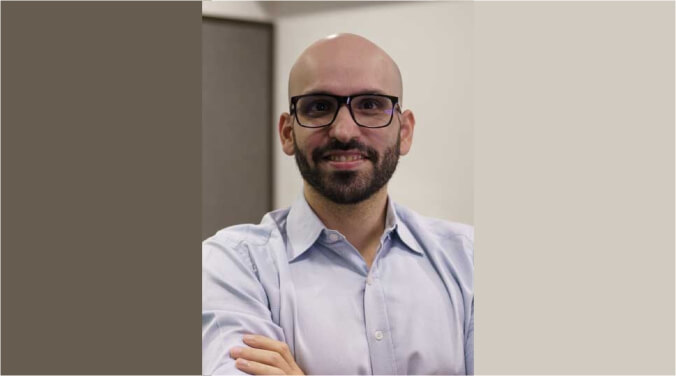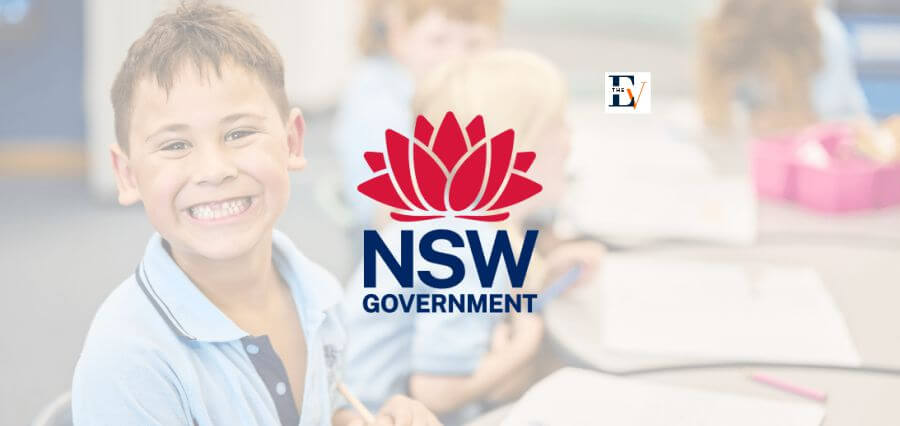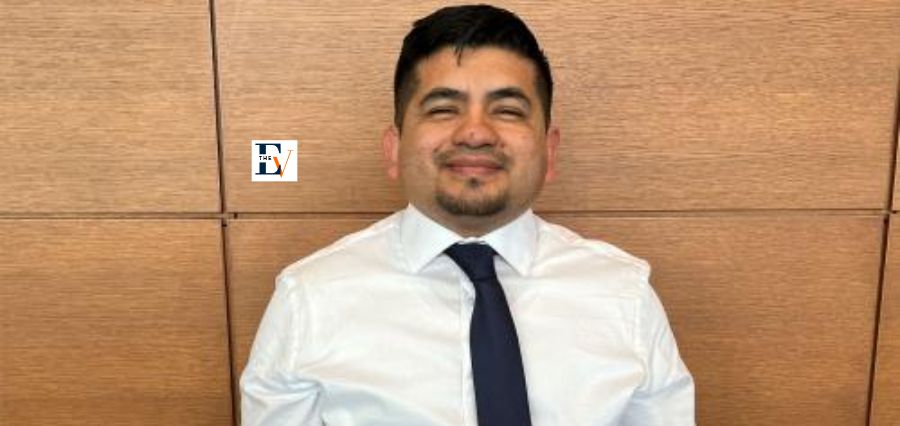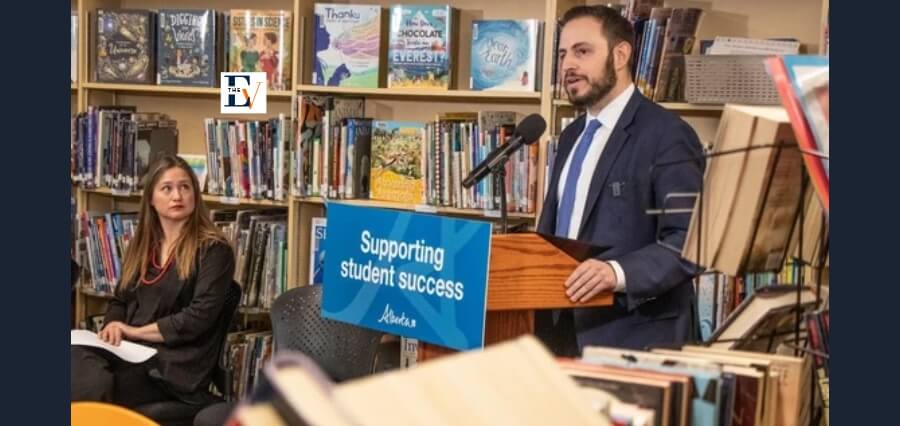To keep up with the changing industry standards that give rise to a career, there are numerous vital aspects that need to be ensured before indulging with an institution. Ensuring that advanced educational providers impart elevated education, in addition to encompassing the resources necessary to address the ever-changing aspects of education while having the experience necessary to foster the individuality of each and every student, is one of them.
Comprehending such facilities and making a difference in the education preface by introducing superlative provisions that highlight every student’s calibre is B.D. Somani International School.
And as no organisation follows the path of progress without the guidance of its leader, B.D. Somani is supervised by a progressive educator who is a deep believer in the power of holistic education, Navroz Billimoria.
Under the guidance of Navroz, the Secondary School Principal of B.D. Somani, its students enjoy a learning experience that addresses every facet of their development. The school follows a progressive approach to learning and a blend of internationally recognised frameworks that foster inquiry and investigation. The school curriculum is designed to nurture global citizens of the 21st century, mindful of their role in their communities and the world and keen to actively contribute to both.
Corroborating Difference
Navroz describes his entry into the educational ecosystem as serendipitous at best. After graduating from University in May 2011, he found himself back in Mumbai. The reason was twofold. India’s domestic narrative appealed to him from an investing point of view, and the amalgamation of his knowledge in Material Science and Finance gave Navroz the confidence that he was in the right place at the right time.
On a routine walk in his neighbourhood, Navroz bumped into his high school teacher, whom he instantly recognized. She was a teacher at B.D. Somani, at that time. That simple reacquaintance paved the path for Navroz to a broader conversation on teaching and education. Long story short, he decided to give teaching a try and he instantly fell in love with the job.
Today, Navroz is a firm believer in the power of holistic education.
He says, “The greatest deterrent to holistic learning is an over-reliance on percentages and an obsession with numbers to attribute success. Our students at B.D Somani are more than the sum of their grades, and we recourse to a quote of Einstein’s to overcome this challenge, i.e. ‘Not everything that counts can be counted, not everything that can be counted counts’.”
B.D. Somani International School is the beacon of meaningful and authentic learning that empowers students with the skills, attitudes, and flexibility necessary to tackle the challenges and opportunities of the ever-changing world. The school focuses on the social as well as intellectual development of its students to equip them to take their place in the global community of the 21st century. In an atmosphere that values academic excellence, the school seeks to encourage respect for individuality and self-awareness. Its core values can be summarised in the embodiment of its 3C’s – Curiosity, Collaboration, and Courage.
Confidence, resilience, friendships, and communication are also a few of the immeasurable traits that become the bedrock of B.D. Somani’s growth. Its teachers do more than ‘teaching.’ They are educators who are driven by the ethos – Excellence in caring, caring for excellence.
Catering Provisions
The school’s CAS (Creativity, Activity, Service) program is very close to Navroz’s heart. Through this program, the students have been able to connect with so many who do not have the same advantages and privileges.
“Our students have raised funds for several NGOs with meaningful causes, and it has been special to witness the positive impact they have made in the lives of so many who are less fortunate,” he says.
The school has also fostered a wonderful kinship with a municipal school in Nadukuppam, near Pondicherry, for over a decade. Its contributions to the growth of the municipal school have made a tangible difference in the outcomes of its students.
Technology is as technology does. In that sense, Navroz believes that it can be a double-edged sword if negotiated impractically. He thinks there are pockets in the educational ecosystem that certainly need to bridge gaps faster than others, and case in point, high schools must engage students in purposeful research, and technology plays a huge part there.
He emphasizes that, be it through digital instruments or software, the ubiquity of tech use should be abundantly clear along with resource allocation. It is imperative, and providing the right training to educators driving the technology is crucial to its implementation.
Inspiring Minds
“To know that we can impact human life in visceral ways is a huge responsibility. Personally, I feel lucky to know that I work with exceptional colleagues who could easily shine in different sectors but choose to make a difference in the lives of our students,” conveys Navroz.
For him, teaching is a vocation that creates other vocations, and to excel in both culture and systems is his constant motivation.
B.D. Somani’s Alumni go into the world and do tremendous things; this makes him proud.
Navroz explains a well-known adage that encapsulates the indispensable goal of a high-quality education – “Give a man a fish, and you feed him for a day; teach a man to fish, and you feed him for a lifetime.” However, what can go unnoticed is the process. How do we ‘teach’ our students “to fish”? One could learn about the different kinds of species and the appropriate bait to catch them, the mechanics behind the working of the rod, and even study correct techniques underlying the process.
And hence Navroz explains that the skills to catch a fish will go missing if never practised with fidelity. Teaching a man to fish requires methods that focus on building a specific skill set. For him, that can be distilled down to adaptability, self-belief, creativity, and grit.
Understanding the young generation is the most meaningful part of education, according to Navroz.
“We tend to normalize empathy, but every generation is different, and their needs are unique. I do feel that listening helps tremendously, and it is important to ensure that our confirmation biases do not surface. Furthermore, recognising that children of all ages can make mistakes too and learn from them is a precious gift,” he states.
He implies that challenging the students to take risks and unearth their own voices through extra-curricular activities proves invaluable to growth. Role modelling is imperative and providing freedom with responsibilities enhances intrinsic discipline. Respect should always be earned, never demanded.
Garnering Allocations
Navroz feels particularly happy to see his school grow to the place where it is today. He supposes an achievement he is quietly pleased about is that he has completed over a decade in an institution and witnessed such powerful stories emerge during his time there. He always looks forward and reflects in a cyclical manner that keeps him grounded and energetic to do good work.
“Always empower others around you to actualise their best version. An excellent team can make all the difference, and it is crucial to nurture their growth. To that effect, I feel that every good leader should hone their emotional quotient in equal proportion to their intellectual capacity,” says Navroz.
He believes good leaders understand that they are passengers in this process and that the work is bigger than the sum of its parts.
Also, if the unprecedented pandemic taught him anything, it would be never to underestimate the importance of human intervention in education.
He ends with, “We are at a stage in the world where the need for community is increasingly important. Education must never be transactional in nature but rather transformational. The de-professionalization of educators is a palpable threat, and no amount of artificial intelligence can replicate the spark of intuition that an educator or a school can catalyse in a student. The future is bright if we can enrich the most significant part – the people.”






